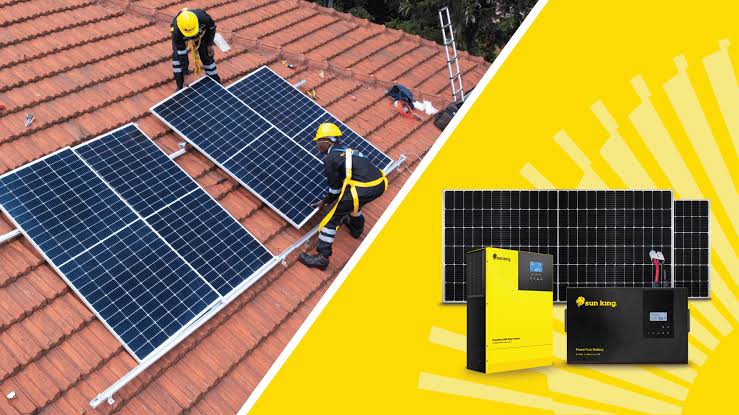Kenya witnessed the closing of a groundbreaking $156 million solar financing deal, the largest in the region, set to accelerate affordable access to electricity nationwide.
This pioneering deal, backed by private investors and commercial banks, aims to bring power to roughly 1.4 million Kenyan households and businesses, many for the very first time.
This initiative promises a substantial shift from expensive and polluting fuels like kerosene and diesel, offering cleaner energy alternatives.
Private capital powers Kenya’s largest solar deal
Finalised on Monday, the $156 million local currency securitisation is supported by major private players including Absa Bank Kenya, Citi, The Co-operative Bank of Kenya, KCB Bank, and Stanbic Bank Kenya.
Sun King, the world’s largest off-grid solar company, leads the drive to scale solar power accessibility in Kenya.
According to the Chief Executive Officer of Sun King, “This financing round is a monumental step to enable approximately 1.4 million low-income households and businesses across Kenya to access affordable, clean electricity.”
This deal is the largest commercial-bank-backed solar financing transaction in Sub-Saharan Africa outside South Africa, marking a key milestone for investors and underserved communities.
The involvement of private investors sends a strong signal about the growing confidence in Kenya’s renewable energy sector.
A spokesperson from Citi stated, “Backing Sun King’s solar initiative aligns with our goal to fund solutions that drive sustainable development and energy inclusion.”
This private capital injection will catalyse the distribution of solar products and smartphones that connect communities to energy and information.
Expanding solar access to transform lives in Kenya
Kenya’s electrification efforts have gained momentum recently, with solar energy playing a critical role.
The International Energy Agency highlights that nearly three-quarters of solar home system sales in East Africa in 2023 occurred in Kenya, underlining the country’s leadership in off-grid solar adoption.
Energy Minister J. Opiyo Wandayi remarked, “This expanded solar financing will accelerate our push toward universal electricity access and reduce reliance on costly fossil fuels.”
The impact of this deal goes beyond rural electrification; it empowers households and businesses to improve their economic prospects and quality of life.
“Switching to affordable solar energy from kerosene not only cuts costs but significantly improves health and safety for families,” noted an energy development expert.
As this initiative rolls out, Kenya’s electrification rate, which has surged from 37 per cent in 2013 to 79 per cent in 2023, is expected to climb further, demonstrating how innovative private sector partnerships can drive lasting change.
This deal reflects growing international confidence in Kenya’s renewable sector and is backed by a diversified group of financial institutions and development funds.
It sets a powerful example for scaling clean energy solutions across Africa, pushing the boundaries of what private investment can achieve in expanding access to electricity.











